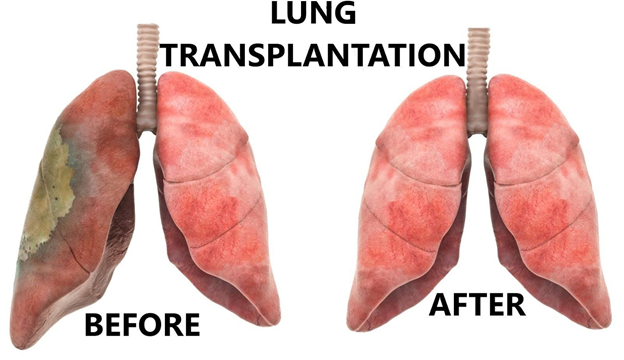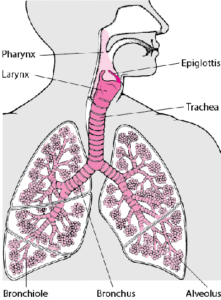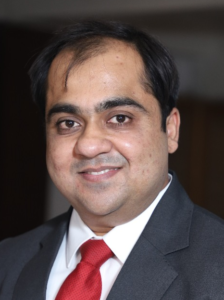
Lung Transplant
| Particulars | Details |
|---|---|
| Cost for Lung Transplant Surgery in India | USD 60,000 |
| Discount | Please speak with MyMedTrip.com at +91 9818 2373 91 or at hi@mymedtrip.com for discount details ONLY APPLICABLE ONLY FOR MyMedTrip.com patients Click here for exceptions and terms. |
| Number of days at hospital (Estimated) | Shall be updated soon |
| Number of days in India outside hospital (Estimated) | Shall be updated soon |
| Treatment’s Success Rate | Shall be updated soon |
| Tests required to help assess the treatment | Shall be updated soon |
What is covered in the above mentioned cost for surgery?
This price includes surgery cost, doctor’s fee, standard prescribed tests and all standard expenses required at the hospital.
About Lung Transplant
The first lung transplant in the world was conducted in the US in 1963. Since this procedure can only be carried out by taking the lungs from a deceased donor, there have been only 4,000 lung transplants worldwide till now. India is responsible for conducting a total of 200 of them.
A lung transplant is often the last resort to treat a diseased or a failing lung. The procedure involves replacing the affected lung with a healthy donor lung, usually from a deceased person.
The lung transplant is a sensitive and major surgery. We will try to address as many things as we can to help you understand it better.
The Lungs
The lungs are sponge-like organs located on both sides of our chest. They are responsible for removing carbon dioxide from the blood and adding oxygen. This cone-shaped organ starts from our collarbone and extends till the tenth bone of our rib cage. The protective cover extends further down the twelfth bone of the rib cage, and is called pleura. In between them, on the left side is where the heart is located.
The Function of the Lungs
The primary function of the lungs is to filter oxygen and carbon dioxide from the air we inhale. The windpipe, trachea, connects the lungs to the mouth. When the air enters this trachea, it gets distributed in the lungs through the bronchial, and is filtered in the microscopic air sacs called alveoli.
The oxygen from the inhaled air in the lungs is then separated in the alveoli and is injected into the bloodstream. Meanwhile, the carbon dioxide is made ready for exhaling.
Apart from its respiratory roles, the lungs perform many other functions. It changes the pH level of the blood by regulating the amount of carbon dioxide, converts angiotensin I to angiotensin II that is responsible for maintaining blood pressure, and filters out any gas bubbles.

Causes of Lung Failure
Lung failure occurs when the proper functioning of the lungs gets hampered due to some conditions. They may be as follows:-
Chronic Obstructive Pulmonary Disease (COPD) – This is a condition where the lungs are damaged which results in difficulty in breathing.
One of the major reasons behind this is smoking tobacco. There are two kinds of COPD known as emphysema and chronic bronchitis. Emphysema occurs when the walls between the air sacs are damaged and the air is trapped in the lungs, unable to be processed.
Chronic bronchitis occurs when the tubes that carry air into the lungs get inflamed or swollen resulting in difficulty to pass air. Along with breathing difficulty, one also suffers from excessive cough and mucus release.
Pulmonary Fibrosis
This is an interstitial lung disease caused by scarring or damage of the lung tissues. The tissues get thick and stiff and make it difficult for the lungs to work properly.
The cause behind this is unknown and it is incurable. However, the symptoms are manageable by medications or transplants.
Pulmonary Hypertension
This occurs when the arteries that connect the heart with the lungs, is narrowed or constricted. It reduces the rate of blood flow into the lungs, which picks up oxygen and carries it to the rest of the body. The heart has to work extra hard to pump the blood and the body falls short of oxygen. This is a serious health condition and there is no cure for it as of now. However, medicines are prescribed to help control the condition.
Cystic FibrosisThis condition occurs due to the build-up of thick and sticky mucus in the lungs. The mucus in a normal person is generally thin and functions as a lubricant to prevent essential organs from any infection or dehydration. However, in the case of a cystic fibrosis, due to a faulty gene, excessive thick mucus blocks tubes and ducts, and channels its way of the body. There is not cure for this but proper medications and therapy may help relieve symptoms.
Preparation for a Lung Transplant
Before the Procedure
After several tests and interviews, the patient is put in the waitlisted candidates list and notified when a match is available. In cases of emergencies, they are given preferences.
Sometimes, the unavailability of deceased donor lungs leads the doctors to consider lung donation from a living person.
After the patient is suggested for a transplant, a transplant team will be created including a transplant surgeon, a transplant pulmonologist, few transplant nurses, a social worker, a psychiatrist, a dietician, a chaplain, and an anaesthesiologist.
Following this, there is an evaluation process which involves assessing one’s psychological factors, one’s lungs and overall health, and the blood condition to find a close match. The patient also has to quit smoking for several months and take various immunizations to reduce the risks.
During the Procedure
The transplant teams usually explain the procedure and get the patient ready by making them sign a consent form, recommending certain eating habits, and giving them sedatives. There is a mandatory hospitalization required before the surgery to get the patient ready.
Just prior to the surgery, an IV line is inserted into the arms followed by general anaesthesia. Catheters in the neck, under collarbones or wrists are attached to monitor the body’s response during the operation. Depending on singular or double transplants, incisions are made and lungs are exchanged.
When the new vessels and airways are attached, the patient is sometimes put on a cardiopulmonary bypass machine which is responsible for supplying the oxygen to the body. Following this, the regular close-up is done which involves stitching the wound. A catheter may be attached later to supply pain medication to the body.
After the Procedure
After the surgery has been successfully performed, the patient is taken to the Intensive Care Unit (ICU) and kept under observation for a few days. After this, when transferred into the room, the attachments of the catheters will be removed. The patient remains at the hospital till around 5-7 days post surgery and discharged according to the recovery of the patient.
The recovery is slow and carries on after discharge. The patient has to visit the doctor for follow-up consultations. Regular blood tests, pulmonary function tests, chest X-rays, and biopsies will be conducted to check how the transplantation is responding in the body and whether there are any infections or not.
Risks involving Lung Transplant
Like any surgery, lung transplant also involves certain risks. Be sure to inquire from the transplantation team of the risks. Some of them may be:-
-
Infection
-
Blood clots
-
Rejection of new lungs
-
Severe pulmonary edema
-
Blockage of airways
-
Blockage of blood vessels
It is very important to take proper care at home after the transplant. Cleaning the wound regularly and keeping it dry is the most essential part. One needs to consult the doctor in case of:-
-
High fever
-
Worsening pain around the incision
-
Trouble breathing
-
Fluid leaking from the incision
-
Redness/ swelling of the incision
-
Cough
-
Chest pain
Top Lung Transplant Doctors in India
Lung transplant in India is available at highly developed private hospitals in metropolitan cities. These are state-of-the-art hospitals with advanced technologies such as extra-corporeal membrane oxygenator (ECMO) and ventricular assist devices (VAD).
We at MyMedTrip.com feature the best doctors with 90-95% success rates, who work at these private hospitals, where the quality of healthcare is at par with global standards.
Dr. Satyanarayana Mysore Lung Transplant Specialist
Dr. Mysore is associated with Manipal Hospital at Bangalore which is NABL accredited. He is the Head of Department of Pulmonology at Manipal Hospital, and a lung transplant physician here. He completed his MBBS from the University of Mysore, and did his DNB in internal medicine from DNB board in New Delhi.
He further pursued his studies in Respiratory Medicine & Sleep Medicine from Australia and is a Fellow of the Royal Australasian College of Physicians.
With over 26 years of experience, he is a member of the medical council of Karnataka.
He is the recipient of multiple awards such as the Cochrane Research Scholarship Award in 2010 or the Professor Derek Frewin citation award for excellence in Clinical Teaching by University of Adelaide in 2012.
Dr. Mysore has held multiple talks and published many research articles. Some of them include an article on fistulocysis, diaphragm metering hernia, pancreatic surgery, and IPMN of the liver. His talks include sessions on Remdesivir drug usage for Covid-19 and monoclonal antibodies.
Dr. Mysore is a renowned Indian surgeon with expertise in respiratory medicine treating airway diseases such as asthma or COPD. He also specializes in treating pulmonology hypertension, preoperative respiratory assessment, and sleep medicine treating insomnia or circadian sleep rhythm disorders.
In interventional pulmonology, he is renowned for his image-guided transbronchial lung biopsy, linear endobronchial ultrasound, advanced video bronchoscopy intervention, and/or medical horoscopy.
Dr. Apar Jindal Lung Transplant Specialist
Dr. Jindal is associated with Yashoda Hospital from Telangana and is the director of the pulmonology department. He completed his MBBS from Sri Devaraj Urs Medical College affiliated to Rajiv Gandhi University of Health Sciences, Karnataka.
He is a certified sleep specialist by the World Sleep Federation- Indian Board of Sleep Medicine. He was a clinical assistant from 2007-2010 at the University of California at Devis Medical Centre. Following this he pursued his higher studies and completed his MD in respiratory medicine from Chettinad Hospital & Research Institute, Tamil Nadu.
He is an active member of the International Society for Heart & Lung Transplant, American College of Chest Physicians, European Respiratory Society, Indian Chest Society, or Indian Sleep disorders Associations etc. Dr. Jindal is the founder of the renowned Southeast Asian Academy of Sleep Medicine.
Dr. Jindal has published multiple papers in leading national and international journals.
Some of them include, “Correlation of Tacrolimus Levels and Metabolizer Status Based on CYP3A5 Polymorphism in Indian Lung Transplant Recipients” in The Journal of Heart and Lung Transplantation, His recent publication was in the month of March in 2021, in the renowned Lancet Respir Med on “Lung transplantation for COVID-19 associated acute respiratory distress syndrome – International experience of first national transplants”.
Dr. Jindal’s areas of expertise include lung transplant, end-stage lung disease, respiratory failure, pulmonary hypertension, endobronchial interventions, advanced sleep disorder managements, and ECMO.
How to Keep Your Lungs Healthy
A lung failure is an irreversible damage and requires a lung transplant at its end-stage. Even after the transplant, in many cases, a person’s body may reject the new lungs. The only way out of this is medications, followed by rigorous consultations and proper home care. It is therefore important to keep the lungs healthy.
We at MyMedTrip.com shall provide you with certain tips to follow for a healthy lung.
-
Quit Smoking. Smoking tobacco is one of the major causes of lung cancer and COPD.
-
Avoid inhaling pollutants such as harmful chemicals and secondary smoke. It is also very important to check for the formation of radon gas at homes as this is the second-largest factor behind lung cancer. Due to its colourless and odourless texture, it can be hard to detect. Also, it forms naturally in houses. Thus making your house free of random requires one to call for services and check its presence.
-
Avoid going to polluted spaces without a protective layer of cloth over the nose such as a mask. Due to climate change, there are toxic chemicals such as sulphur dioxide, carbon monoxide or nitrogen dioxide, released constantly in the air. This is especially harmful for people who are predisposed to lung conditions. Proper masking as a preventative measure would help in the long term duration.
-
Exercises go a long way in helping keep the lungs and heart healthy. Exercising regularly enhances the body’s blood circulation which is responsible for carrying oxygen. It also helps in strengthening the heart and the lungs as they work extra hard to supply oxygen during rigorous physical activities. The body then normalizes this strength and becomes efficient in its function for a longer period of time.
For any further information of lung transplant, lung transplant doctors in India or best hospitals for lung transplant, email us at hi@mymedtrip.com
Frequently Asked Questions about Lung Transplant Surgery
What is the cost of Knee Surgery in India?
To be updated soon
What is the discount in Knee Surgery through MyMedTrip.com?
Lorem ipsum dolor sit amet, consectetur adipisicing elit. Optio, neque qui velit. Magni dolorum quidem ipsam eligendi, totam, facilis laudantium cum accusamus ullam voluptatibus commodi numquam, error, est. Ea, consequatur.
Who requires a Knee Surgery?
Lorem ipsum dolor sit amet, consectetur adipisicing elit. Optio, neque qui velit. Magni dolorum quidem ipsam eligendi, totam, facilis laudantium cum accusamus ullam voluptatibus commodi numquam, error, est. Ea, consequatur.
Which implant is used in Knee Surgery?
Ranging from Johnson & Johnson, there are many reputed manufacturers which include Zimmer, Smith & Nephew, Biomet, Stryker and DePuy.
My knee hurts but I am not sure if I need a knee replacement. What should I do?
Lorem ipsum dolor sit amet, consectetur adipisicing elit. Optio, neque qui velit. Magni dolorum quidem ipsam eligendi, totam, facilis laudantium cum accusamus ullam voluptatibus commodi numquam, error, est. Ea, consequatur.
Is knee replacement a risky procedure?
Lorem ipsum dolor sit amet, consectetur adipisicing elit. Optio, neque qui velit. Magni dolorum quidem ipsam eligendi, totam, facilis laudantium cum accusamus ullam voluptatibus commodi numquam, error, est. Ea, consequatur.
How important is rehabilitation after surgery?
Lorem ipsum dolor sit amet, consectetur adipisicing elit. Optio, neque qui velit. Magni dolorum quidem ipsam eligendi, totam, facilis laudantium cum accusamus ullam voluptatibus commodi numquam, error, est. Ea, consequatur.
How long does it take to return back to normal routine after surgery?
Lorem ipsum dolor sit amet, consectetur adipisicing elit. Optio, neque qui velit. Magni dolorum quidem ipsam eligendi, totam, facilis laudantium cum accusamus ullam voluptatibus commodi numquam, error, est. Ea, consequatur.
What is the success rate of this surgery?
Lorem ipsum dolor sit amet, consectetur adipisicing elit. Optio, neque qui velit. Magni dolorum quidem ipsam eligendi, totam, facilis laudantium cum accusamus ullam voluptatibus commodi numquam, error, est. Ea, consequatur.
What do I do if I need to speak with my doctor after I return back to my country?
Lorem ipsum dolor sit amet, consectetur adipisicing elit. Optio, neque qui velit. Magni dolorum quidem ipsam eligendi, totam, facilis laudantium cum accusamus ullam voluptatibus commodi numquam, error, est. Ea, consequatur.
Can the doctors and hospitals in India be trusted with this procedure?
Lorem ipsum dolor sit amet, consectetur adipisicing elit. Optio, neque qui velit. Magni dolorum quidem ipsam eligendi, totam, facilis laudantium cum accusamus ullam voluptatibus commodi numquam, error, est. Ea, consequatur.



